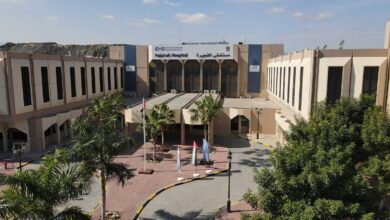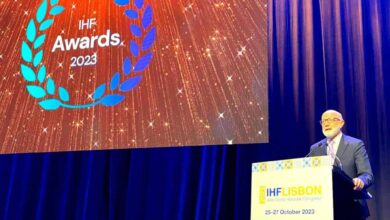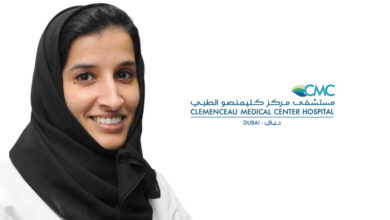The Ethics Committee of Hôtel-Dieu de France During the COVID-19 Pandemic

Hôtel-Dieu de France’s Ethics Committee is composed of health professionals and people of moral authority (academics, religious, lawyers, social workers, civil society members, etc.).
The Committee meets once a month or more, in case of emergencies, to discuss with doctors and health professionals and advise them in order to make the best decision and offer their patients the best possible attitude to face pathologies that can often confuse them, their families and healthcare providers.
The Committee intervenes in clinical matters, but also gives a decisive opinion concerning the research work taking place at Hôtel-Dieu de France by professors and researchers of the Saint Joseph University or by the doctors of HDF.
During the COVID-19 pandemic, the Committee issued some ethical recommendations specific to this period, as ethical issues related to medical care and research were recalled all over the world:
- Never before has medical privacy been so severely undermined. It should be emphasized that it is not allowed to publicly disclose the name of the person infected. Names must never circulate, especially in the press. Respecting anonymity is a core principle. If a positive person refuses to reveal its infection and to remain in quarantine, breaching medical confidentiality is authorized by law.
- Triage of patients. An ethics committee or “ethics experts” should not replace doctors who are responsible for setting priorities in this matter. Local ethics committees should solely be available to help with the decision.
- The freedom to choose your own doctor. Every person has the right to choose his or her own doctor. Treating patients is more than just having a good knowledge of the disease and its treatments, the chemistry between the patient and the doctor is also essential for the treatment to be successful.
- Healthcare workers cannot shirk their responsibilities and therefore not be present during this pandemic. Not only is their physical presence required, but also a presence filled with compassion that eases fears of the sick and potentially sick. All healthcare workers must take care of their own mental health. A counselling and support unit must always remain open to welcome them and patients.
- The right for everyone to have access to healthcare must be preserved, if not reinforced in times of pandemic. All financial considerations that can limit equal access to healthcare must be disregarded in favor of providing optimal care for anyone in need.
- The duty to show solidarity. Great emphasis should be placed on the necessary solidarity among all members of HDF. We must be able to count on the availability of the religious or spiritual guidance services, be it Muslim, Christian or non-religious. These people will guide the sick and their families, listen to them and comfort them by their mere presence.
- It is important to avoid the stigmatization of infected patients and health-care workers who take care of them. Those who freely agreed to treat these patients deserve esteem and consideration. We must never neglect them, nor reject them, nor stigmatize their disease.
Moreover, the COVID-19 pandemic had a major impact on the conduct of ongoing clinical trials at the hospital. Visits to healthcare sites, the participants’ self-isolation, the high risk of infection and the population’s confinement led to the implementation of appropriate measures.
In order to ensure the safety of participants in clinical trials and of healthcare professionals, the Ethics Committee has published recommendations recalling the need to weigh the benefits and risks when taking any action and to respect the same research criteria as outside of these times of pandemic.
For interventional studies, laboratory tests were encouraged outside the hospital if participants could not reach it, and that at the expense of the sponsor of the study.
In addition, researchers had to ensure that patients would still receive their medical treatment. The Committee had suggested a safe distribution of the experimental material directly to participants when feasible.
These various recommendations were issued in harmony with the European Guidance on how to manage clinical trials and the Food and Drug Administration Guidance on Conduct of Clinical Trials of Medical Products during the COVID-19 pandemic. However, since the start of this pandemic, the Ethics Committee of HDF has approved no less than 40 new research projects related to various aspects of this new virus and its treatment, as part of the work of teachers-researchers of the Saint Joseph University in the medical, paramedical and engineering fields.
These various initiatives and services provided by the Ethics Committee during this pandemic were put in place in parallel with the exceptional measures taken by Hôtel-Dieu de France’s administration to manage the COVID-19 sanitary crisis. To an unprecedented emergency like this one, it was necessary to respond very quickly with emergency measures in order to guide healthcare workers and researchers in essential care and research procedures to preserve the dignity of the human being facing this unparalleled crisis.
















